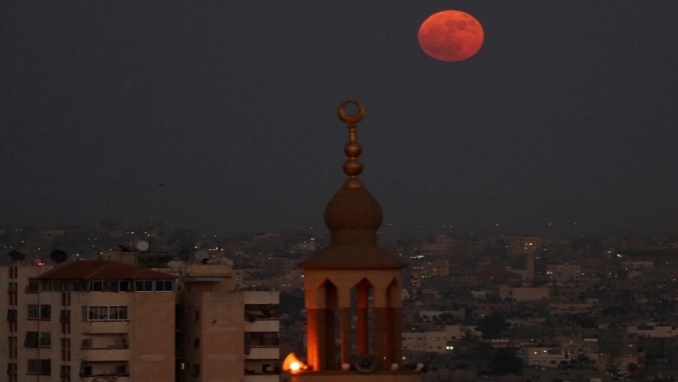The Israeli military has carried out air raids targeting Hamas positions in the besieged Gaza Strip, injuring two people and causing damage, Al Jazeera reports.
According to the official Palestinian news agency Wafa, Israeli warplanes fired a series of missiles on Saturday in the eastern, northwestern and central parts of the Gaza Strip, including open farmland, wounding a six-year-old girl and a man in his 20s. The attacks caused power cuts in the eastern parts and caused some damage to a children’s hospital, a centre for disabled people, and shattered the windows of some residential buildings, according to the reports.
However, Israeli army spokesman Avichay Adraee said on Twitter that the raids hit a rocket manufacturing site and a military post belonging to Hamas – the group that governs the Gaza Strip – adding that the attack had been carried out in response to rocket fire from Gaza.
According to the army, a rocket was fired at Israel from the Gaza Strip on Friday night, shortly after warning sirens sounded in the southern Israeli city of Ashkelon. Israeli media said the projectile was intercepted by the army’s Iron Dome anti-missile air defence system.
No Palestinian group in Gaza has claimed responsibility for the rocket fire, which broke months of relative calm, but Israel holds Hamas responsible for all attacks emanating from Gaza, including those claimed by other fighter groups based in the enclave.
Meanwhile, Lebanese Hezbollah warned on Friday that the possibility of war with Israel still exists, confirming that the probability: “Stems from a sense of responsibility, not to provoke terror and panic among people,” Middle East Monitor adds.
This came in statements issued by Head of Hezbollah’s executive council Hashem Safi Al-Din, reported by the Lebanese El-Nashra news agency. Safi Al-Din affirmed that: “The existing equation with the Israeli enemy is to target and respond to aggressions, which keeps the enemy in a state of constant alert, and if we are able to keep them in a state of fear and anticipation, then we will be relieved of their heinous crimes.”
He considered that: “Israel is searching today for alternatives in dealing with the resistance, and seeks another way to confront us, which proves its failure. If the occupation really succeeded in besieging Hezbollah at home on the political level, would they need all the fake heroism?”
The Hezbollah official pointed out: “Some have given the demarcation of the maritime borders and the launch of indirect negotiations with the enemy great dimensions, inspired by the current state of normalisation, but Lebanon is far from all that. All the intentions in this context to target Hezbollah is mere talk far from reality.”
The impoverished and densely populated Gaza Strip has been under a crippling Israeli blockade since 2007, after Hamas took over the coastal enclave. Hamas and Israel reached an agreement at the end of September to cease hostilities, although attacks continued.
The ceasefire followed a deadly surge in violence and was to see Israel allow new development projects, including an industrial zone and a hospital. Hamas has accused Israel of not fully complying with the deal.
Israel, which deems Hamas a “terrorist” organisation, shuns direct negotiations and has never publicly acknowledged the truce. Israel has launched three offensives against the Gaza Strip since 2008, and there have been numerous flare-ups.
